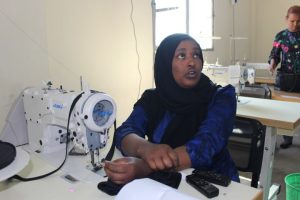JOHANNESBURG (Reuters) – South Africa, one of the 30 most water-scarce countries in the world, has revoked its classification of drought as a national disaster, drawing criticism from the agricultural sector.
Parts of South Africa have suffered consecutive years of abnormally hot weather and below average rainfall. The El Nino-induced drought that hit southern Africa in 2015 scorched grazing lands and hit crop output.
Agricultural lobby group Agri SA said the decision by the government – where finances are tight due to a rising national debt – to drop the drought declaration “boggles the mind” and asked to see the research and data that led to its repeal.
“It is of grave concern that the head of the National Disaster Management Centre ignored the fact that large parts of the Western, Eastern and Northern Cape continue to suffer from the effects of the longest drought in 100 years,” Agri SA said in a statement.
The decision was taken after the
government reassessed the magnitude and severity of the drought conditions after the expiry of the national state of disaster on July 4, the head of the National Disaster Management Centre, Mmaphaka Tau, said in a government gazette notice on Thursday.
The official state of disaster allowed struggling farmers to receive cash and feedstock assistance during droughts. Tau urged all stakeholders to work together with government in implementing droughtresilience and climate-change adaptation measures – such as water conservation steps and drought-resistant crops – to reduce the impact of low rainfall.
Agri SA said disaster relief amounting to 139 million rand ($8.34 million) provided by the government after the declaration of national drought on March 4 was a fraction of the actual cost to the agricultural sector over the past 5-8 years. Southern Africa’s temperatures are rising at twice the global average rate, according to the International Panel on Climate Change, and in much of South Africa the level of water in reservoirs is dwindling.
The Ethiopian herald July 19,2020





